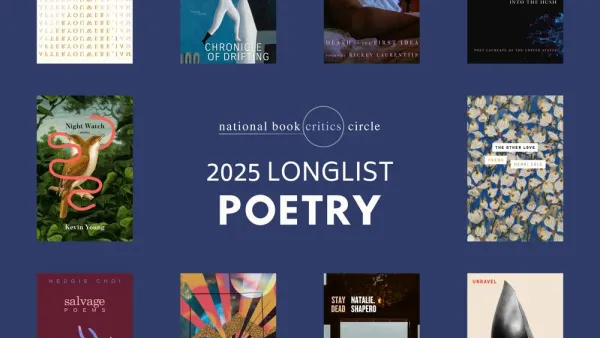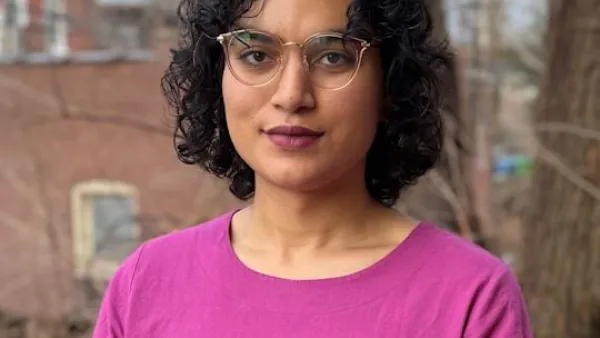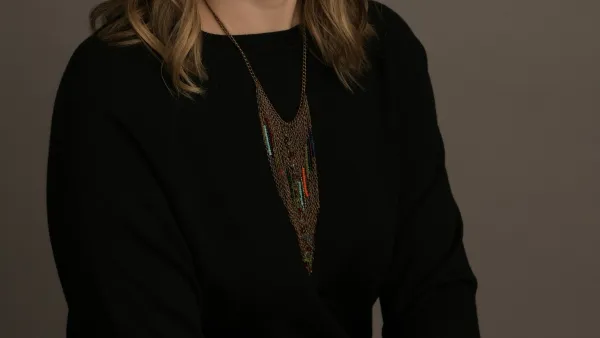In an ongoing effort to highlight our teaching faculty and the great work they are doing, The Duncker Digest sent out a series of questions with the invite to answer "with as much or as little as you'd like." Our faculty members are a busy bunch, so our expectations were modest: maybe we'll get back a question or two to highlight what's going on. But yet again, our expectations were blown away. Claire took the time and effort to answer every last question in detail. So it is with our great appreciation that we present to you this insight into Claire Sommers:
Claire Sommers is a Lecturer in the Department of English and the head of Wahington University's branch of Sigma Tau Delta, the National English Honor Society. Her first book project Chimeras, Centaurs, and Satyrs: Creating Hybrid Texts in Antiquity and Early Modern England historicizes the link between hybrid creatures and what she classifies as “hybrid texts,” works that exhibit their composite nature in three registers: they combine multiple genres; they evoke hybrid creatures; and they emphasize the indeterminacy of linguistic meaning.
Claire,
Q: What would be the epigraph to the book about your life?
A: The end crowneth all the work. (Queen Elizabeth I quoting a proverbial adage)
Q: What motivates you to write and/or what first inspired you to pursue writing?
A: The early modern humanist ideal asserts that reading and writing must be interwoven in order to achieve proficiency in both skills. Montaigne in fact uses the image of a bee culling flowers to produce honey as a metaphor for reading texts and subsequently writing about them (Montaigne is incidentally following his own advice because he culled this quote from Seneca). I always tell my students that as we write, we think and we learn. As an early modernist with a background in classics and critical theory, I draw on the past in order to better understand the present and imagine new possibilities for the future. When I write about these texts, I am able to immerse myself in a time very different from our own, and I am able to find new meanings in texts that have been read again and again throughout the centuries. Montaigne also saw his book as half of a conversation, and when I write, I not only enter into a dialogue with authors who are long gone, but I hope to initiate a discussion with others.
Q: Tell us about what's going on with Sigma Tau Delta. Is there a way for us to keep up with it?
A: Sigma Tau Delta is dedicated to creating a vibrant community not only for current and prospective English majors and minors, but for all of WashU’s book lovers, including our department faculty. This year’s slate of events includes a bad poetry contest, a Valentine’s Day Book exchange, a literary costume contest and murder mystery (see photo), a bookmark painting party, a trivia night, and of course our signature coffee hours, where we play a variety of literature-themed games. We are also planning a book drive for the winter holiday season—our goal is not only to give back to the city of St. Louis, but to instill in the next generation the same love of literature that brought all of us to this department. You can follow Sigma Tau Delta on Instagram (@washuenglishhonors) or just check your inboxes. Our next coffee hour will take place this Wednesday, 11/9 from 11:30-12:30 in Hurst Lounge and will feature special guest Prof. Riker, who will be holding an informational open house to answer any and all questions about the English department’s new publishing concentration. We hope to see you there!
Q: What energizes you to work with undergrads/honors students?
A: My students here at WashU, whether I interact with them in the classroom or as part of Sigma Tau Delta, consistently inspire me with their motivation, their dedication, and most of all their curiosity. Plato established that the best way to learn is through dialogue, and I value the exchanges I have with my students as part of our classroom discussions. My research challenges me to read old texts in order to discover new insights, and that is exactly what happens when I converse with my students, as they draw on both academic knowledge and personal experience in order to probe what are often very complex works of literature. Most of all, I appreciate that my students are always able to surprise me, whether with a provocative question, a thoughtful comment, a creative project, a gift card to Snarf’s (a birthday gift courtesy of my Drama Queens class), or (just last week), dressing up as me for Halloween (and yes it was a dress that I would absolutely wear). Every time I step onto the campus, I am energized to enter my classroom because I’m excited to see what will happen next.
Q: Do you have a favorite book of all time, or just of the moment? Why? Is there any book that you wish you'd have written?
A: When choosing my favorite books, I tend think as much about the role that the book has had in my life as I do about the content. I am especially drawn to books that attempt to engage the reader in a sort of hermeneutic dialogue, works that create a texture in order to encourage the audience to think and interpret. To Kill a Mockingbird was the first book that showed me the possibilities of literature—how an author could weave together a series of images, topoi, and metaphors in order to express a social message. Plato’s Phaedrus demonstrated the power of allegory—I was struck by Plato’s ability to articulate the human condition in a manner that required the reader to participate in the interpretative process. The Winter’s Tale, was the text that cemented my love of Shakespeare—I found the famous “gillyvor exchange” to be a powerful meditation on the creative process itself, a sly admission that even the playwright cannot fully fathom the composite production he generates. But in terms of pure enjoyment, my favorite book is Denis Diderot’s Jacques the Fatalist, which examines the relationship between free will and determinism. In a metacommentary on the writing process, Diderot frequently breaks the fourth wall by having an author character interject and directly address the reader. The novel has never failed to make me laugh out loud.
Q: Is there a part of your writing process you'd like to share with us? Or, are there any tips you would give to aspiring writers?
A: Too often, writing is treated with a sense of finality. But writing is not the last step. It is the first step, and I tell my students all the time that we think as we write. Until something has been published, you can (and should) go back and make changes. In fact, you should always give yourself the time and space to walk away from your work—take a break, let it sit in a drawer, go for a walk, go shopping — and then come back to it after a few days and read it with new eyes. When I write, I have two files open—the chapter/article that I am writing and then a separate “detritus” file. When I re-read my own work, I constantly ask myself whether an idea is central to my argument or whether it is an interesting but ultimately tangential distraction—if the section falls into the latter category, I move it to the detritus file. That way, my idea isn’t really gone, it’s merely deferred, and I have the option to go back to it at a later date and hopefully use it as the basis of a new project. Someone once told me that the dissertation is not the end but the beginning and I think that sentiment applies to any writing project—if the idea doesn’t quite fit, save it for another day. There is always a new opportunity to write and to develop new thoughts.
Q: Is there any word or phrase that you feel is underutilized and should be used more often? Is there any word/phrase which you think has been worn out and needs a break?
A: As an early modernist, I would like to answer with a very obscure or obsolete Renaissance word or phrase. However, I truly believe we should use the words “I don’t know” more often than we do. I don’t think anyone has ever gone wrong with that phrase—admitting our limitations acts as an invitation for someone to teach us, and as such is the beginning of knowledge. As for a word that is over-used, my answer may seem surprising given my research, but I’m actually going to say “hybrid.” My book traces the evolution of the hybrid from ancient intangibility to early modern proximity. Now, it seems as though the word hybrid really is everywhere—hybrid cars, hybrid energy, hybrid learning. But I think we have lost the essence of what gives the hybrid its transcendent capacity—today’s hybrids are no longer connected with the biological or the human but rather the technological, they no longer poses questions, and they no longer demands interpretation. I think there needs to be more of a connection with the human in order for the hybrid to fulfill its potential to surpass limitations.
Q: What is your go-to favorite meal in St. Louis?
A: I am partial to Pizzeria da Gloria on the Hill for their Stracciatella pizza (with cold mozzarella on top) and to Evangeline’s in the Central West End, where I order the crawfish étouffée and the bread pudding. But if I’m completely honest, my most frequent meal—the meal I most crave when I am away from St. Louis—is the Italian sandwich from Snarf’s (one of my Drama Queens students worked there last year—when he mentioned in class that his co-workers recognized my name from “many orders,” I realized how often I go there). I like to write outside, so I usually pick up a sandwich from Snarf’s and go to Taylor Park in the Central West End to work on my book.
Q: How would you like to see the WashU English Department progress in the coming years?
A: I would like to see the department continue to grow with respect to increasing our student numbers as well as our faculty members. I have been heartened to see that students have a strong interest in early modern literature, and despite its being far-removed from their everyday experiences, they become passionately invested in the stories and characters we discuss. I would like to find new ways for students to engage with early modern literature, including experiential learning, technology, creative assignments, special events that link the Renaissance with contemporary society, and of course, incorporation of the latest scholarship, particularly emerging studies that foreground historically underrepresented topics such as race, gender, and sexuality studies. And of course, I hope that Sigma Tau Delta will continue to offer new and creative events and that we will be able to expand our reach so that all students on the WashU campus can experience the community, fellowship, and of course education that defines our English department.
Q: What research projects are you currently working on?
A: My research positions the early modern period as the intersection between classics and critical theory. I have completed my book manuscript, Chimeras, Centaurs, and Satyrs: Creating Hybrid Texts in Antiquity and Early Modern England, which establishes a connection between the affective embodiment of hybrid creatures and what I have termed “hybrid texts,” works that combine multiple genres; evoke material composites; and emphasize the indeterminacy of linguistic meaning. The burgeoning globalization and colonialist impulse of the early modern period prompted a reengagement with the classical understanding of hybridity, a concept rooted in the ancient Greek word hybris. Though the term is often translated as corruption or violence, I stress its alternate understanding as “surpassing what is humanly possible” and I draw on travel narratives and scientific texts to argue that the hybrid’s position in the liminal space between imagination and reality made it an ideal symbol of hermeneutic innovation. Anchored in this philological reading, my study demonstrates that early modern hybridity anticipates the work of Bhabha, Haraway, and Foucault, theorists who similarly recognized the fecundity of such mixture. Ultimately early modern hybridity, whether manifested through generic mixture or racial and cultural intersection, is a positive generative force and a mode of creative transcendence. I have also begun a second book project called Drama Queens: Creating Cleopatra and Engaging Elizabeth. The outgrowth of my Drama Queens special topics course, this project contends that the figure of Cleopatra functioned as a historical counterpoint by which to critically examine Queen Elizabeth I, with the parallels between the two monarchs’ performance of race and gender allowing dramatists to find an ancient analogue for the emergent British empire.




